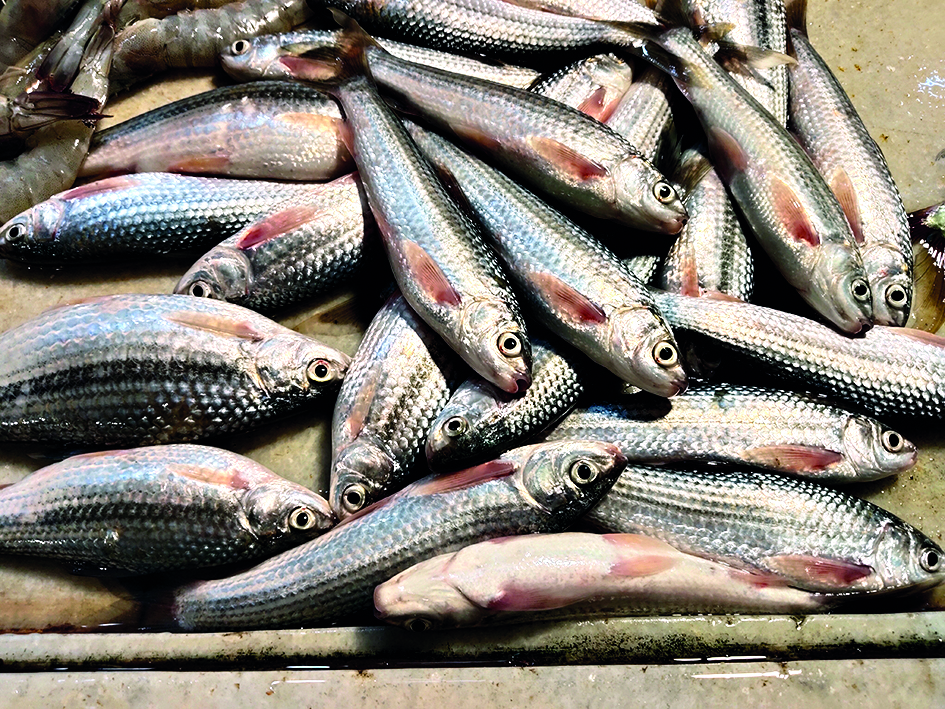Pollution results in Raikhar fish shortage in Atreyee River

BALURGHAT: Balurghat’s renowned fish, Raikhar, is becoming increasingly scarce in the Atreyee River, even during the monsoon season, raising concerns among locals and officials alike. The district fisheries department is alarmed by the dwindling numbers of this species and is urging everyone to step forward to prevent the extinction of not only Raikhar but other species as well.
The Atreyee River, a significant waterway in South Dinajpur district, flows 58 kilometers between Kumarganj and Balurghat blocks before returning to Bangladesh. It supplies approximately 40% of the fish consumed in the district, with the remaining coming from ponds, canals, and external sources. The Raikhar fish, known for its unique taste, is abundant in the Atreyee River. This fish is sold in local markets for Rs 500-600 per kilogram. During the monsoon, however, the price drops to Rs 200-300 per kilogram, making it accessible to local households, where it is celebrated as a seasonal delicacy with a variety of dishes prepared to entertain guests.
This year, however, there has been a noticeable shortage of Raikhar fish in the markets, leading to fear among environmentalists, fish traders and the general public that this special species might be on the brink of extinction. Environmentalist Tuhin Subhra Mandal explained: “Previously, a significant amount of Raikhar was found in the Atreyee River during the monsoon. However, for the past two years, this fish has been scarce, primarily due to river pollution and reduced rainfall.”
Sudhir Haldar, a fish trader in Balurghat, expressed his concerns: “Local fishermen used to catch Raikhar from the Atreyee River and bring it to the Balurghat market. Now, they claim that Raikhar is no longer available in the river, so they are unable to supply it to the market. There’s a high demand for Raikhar and people inquire about it daily. When we tell them it’s unavailable, they are forced to buy other fish.” The district fisheries department is equally worried about the situation. They have identified pollution as one of the primary reasons for the decline in Raikhar fish. District Fisheries Officer Abhijit Sarkar stated: “The weather plays a significant role. Usually, fish breed in the algae along the riverbanks and drizzly weather is conducive to their reproduction. However, for the past two years, the weather has not been favourable. The river’s banks have become unsuitable for fish breeding due to pollution from plastic waste in the city. Before discharging waste into the river, it is crucial to recycle it, similar to the Ganga Project. We have discussed this issue with various administrative bodies and raised awareness. While we handle the technical aspects, it is up to the administration to take action. We strongly advocate for efforts to control pollution to protect our rivers and fish species.”
The situation in Balurghat serves as a stark reminder of the environmental challenges that local ecosystems face due to pollution and
climate change.



